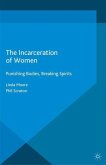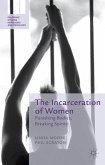Pat Carlen's compelling and compassionate analysis of the penal control of women at the end of the twentieth century is based on new research completed in 1997. She develops many of the themes of previous work, while introducing new concepts such as 'gender-testing', and 'ameliorative justice'. Skilfully and vividly presenting the words and views of both staff and inmates of the women's prisons, Carlen presents a powerful case for both a quantitative and qualitative reduction in women's imprisonment.
'...an excellent and important book...Pat Carlen's hope for change before the dawn of the new millennium has not been met but thanks to her spirited, scholarly and relentless challenge to the current system we may continue to hope that one day soon we will see an end to the sledgehammer of a system of women's imprisonment; and that, in its place, we will witness the birth of a more holistic, women-wise response to girls and women in criminal trouble.' - Penny Green, British Journal of Criminology
'Sledgehammer has a significance beyond itself. At one level it is straightforwardly a criminology book and if there were prizes for the best such book in a given year, this deserves to win, hands down. But it is also a state-of-the-nation book, aptly offered for reflection on the eve of the Millennium, which says something rather sombre about the kind of country we have become...It makes its case so well that it is hard to imagine any reader not being stirred to action.' - Mike Nellis, University of Birmingham
'Sledgehammer has a significance beyond itself. At one level it is straightforwardly a criminology book and if there were prizes for the best such book in a given year, this deserves to win, hands down. But it is also a state-of-the-nation book, aptly offered for reflection on the eve of the Millennium, which says something rather sombre about the kind of country we have become...It makes its case so well that it is hard to imagine any reader not being stirred to action.' - Mike Nellis, University of Birmingham








